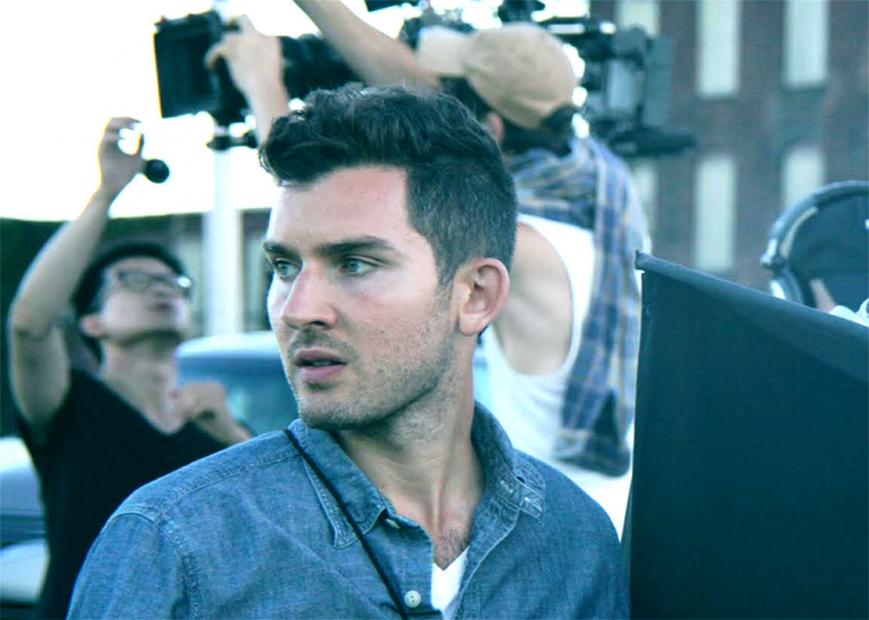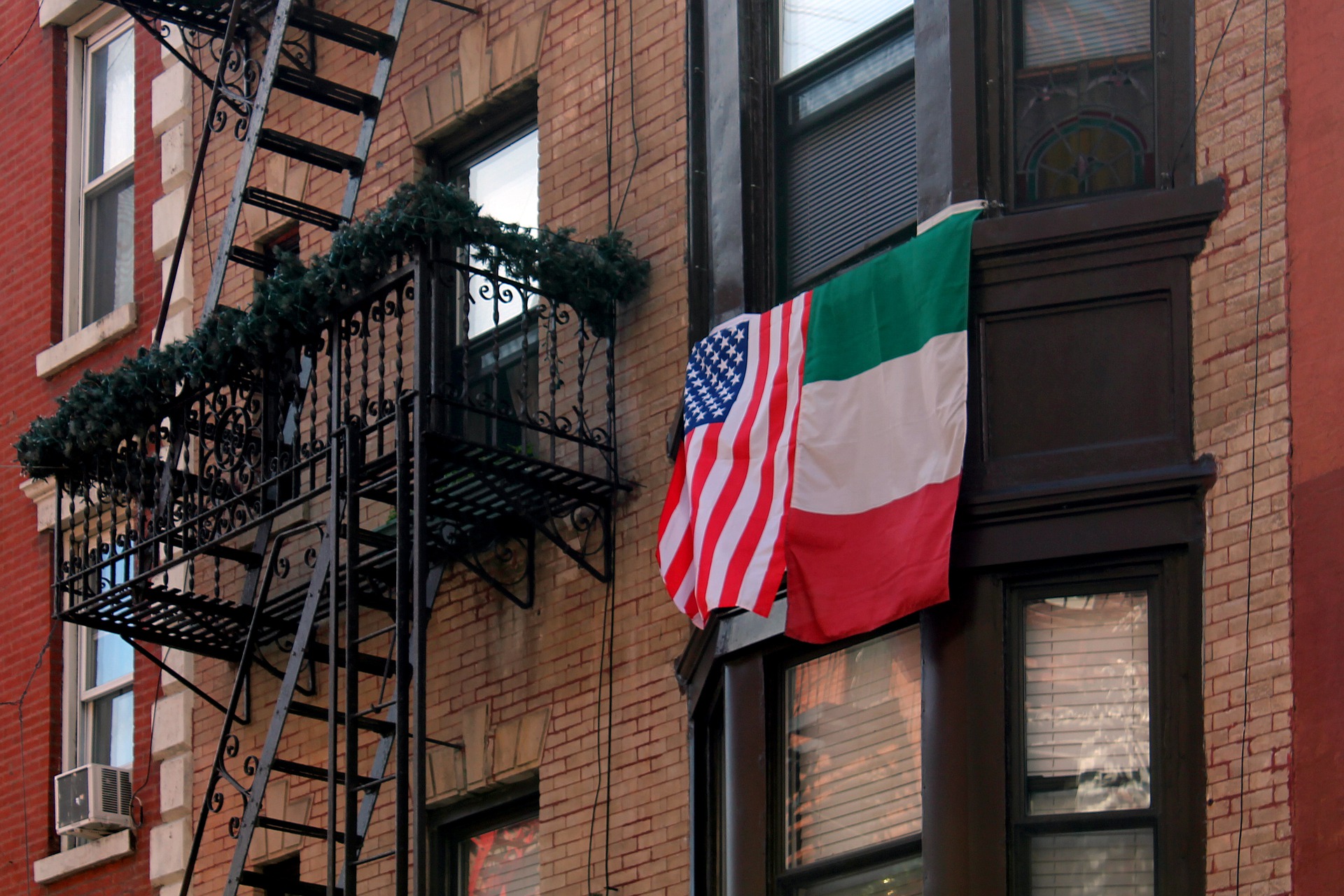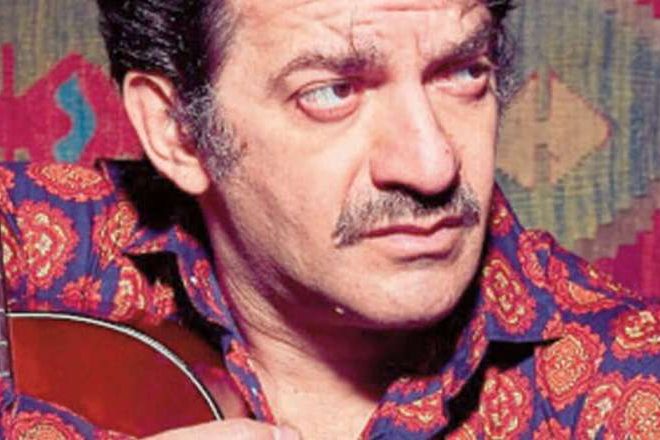Why am I comparing up-and-coming, Italian-American filmmaker, Laurence Vannicelli to Federico Fellini, the most celebrated Italian auteur of all times?
Well, because the source of inspiration for Laurence’s upcoming film, La Certa – set in the surroundings of L’Aquila, in Abruzzo region of Italy – is the same as Federico’s. That is to say, his dreams.
In fact, Vannicelli has experienced a recurring, nighttime journey across the depths of his psyche, that sparked the concept for his surreal romance set in the Italian countryside, where his grandparents were born.
As far as Fellini’s creative process, for almost thirty years of his life, every morning as he woke up, the filmmaker jot down and illustrated – both artfully and humorously – his dreams, eventually filling up two notebooks.
In 2003, Italian publishing house Rizzoli (RCS Media Group) released Fellini’s Il Libro dei Sogni – the original note pads combined in one exhaustive and glossy collection of his dreams (English translation, The Book of Dreams, 2007).
However, Vannicelli and Fellini are not isolated cases: filmmakers Andrei Tarkovsky, Sergei Parajanov, Luis Buñuel and David Lynch, as well as painters, Odilon Redon, Salvador Dalí, William Blake, Man Ray, and other artists from every corner of the globe, have chosen to draw on those fragments of subconscious reality with no filters, instead of more naturalistic forms of representation.
Like American novelist and poet, Jack Kerouac, once said: “All human beings are also dream beings. Dreaming ties all mankind together.”
We, from L’Italo-Americano, warmly wish Laurence Vannicelli lots of dreamful nights to come.
Please, introduce yourself. What’s your cultural background?
I’m Laurence Vannicelli and I grew up in Cambridge, Massachusetts. My father is from Rome and came to the US to pursue his studies.
In terms of education, I have a BA in Art-Semiotics at Brown University, Providence, Rhode Island, and an MFA in Film (directing) from Columbia University, New York City.
How was your upbringing in an Italian-American household?
My father’s entire family still lives in Rome. I spent every summer there as a child and still visit often. My father – who moved to the States when he was 30 – has always held onto his Italian culture, and that was a big part of how I was raised.
You’re a filmmaker who “wears many hats.” Matter of fact, you’re a writer, director, cinematographer and editor. Tell me more about your beginnings. Did you like having control over every step of the process?
After making some experimental shorts, I worked on the short, Open Air, the first one with a real narrative. At the time, I clung to the idea of having control over the entire process, “wearing many hats.”
Over time, I’ve tried to let go of that control, realizing that film shouldn’t be simply an expression of what I want it to be, but is really about how you can engage and excite an audience.
It was through Open Air, that I first became aware of how important the power of story is and that a film cannot be simply visual.
I applied to grad school shortly thereafter with the intentions of learning how to write and to direct a feature.
How was the making of the short, The Young Housefly (which just premiered online at Short of the Week), nominated for the Student Academy Award?
It was a very funny and memorable experience. A crew of five and myself shot it in my mom’s house. The lights and the rest of the equipment was very stripped down to the bare essentials. The whole budget amounted to $500.
The success it has had both in festivals (particularly, its nomination for a Student Academy Award) and online, where it has been viewed by over 20.000 people, was very encouraging. The short is weird and experimental, and this large recognition definitely stimulates me to keep taking risks.
How did you develop the concept for your upcoming black comedy feature film, La Certa, to be shot soon in Abruzzo, region of Italy?
A recurring dream was the inception of the film: a guy tries to bury his father; for some reason, the latter can still talk but cannot see, forcing the son to describe the Abruzzo’s countryside as they search for the cemetery.
Later on, I expanded the story into something much more comedic and romantic, with a “dose” of Andrei Tarkovsky and Michelangelo Antonioni.
Could you elaborate on the film’s current stage of pre-production. Have you already secured cast and locations? Did you find people who believed in your project, or rather a series of shut doors along the way?
Franco Nero is attached to the role of the father. He is currently giving us some insightful notes about the script. We have also the VFX crew on board and we’ve already secured 80% of the locations. We will go out to investors this fall (once everyone is back from vacation).
So far the response to the film has been really positive in Italy. I think this is because we are avoiding the clichéd portrayal of the country as a picturesque backdrop. The people, the history and the geography around L’Aquila are all essential characters in the film.
A few words about your production schedule…
Upon receiving the remaining funds, we’re going to shoot in spring 2017. While I’m waiting for the financiers to get back to us, I’m polishing the screenplay.
Simultaneously, you’re in post-production with your first feature, Vera, and in pre-production with the Sloan-Awarded, Station Blackout. Please, elaborate on both of them.
They are two very different projects, which almost belong to two separate careers.
Vera – whose post-production stage just ended – is an indie film, which will premiere later this year, about a model who is aging out of her career. She takes up an acting role in an action movie to make ends meet. On her first day on set, she is unable to feel any sincere emotion and, thereby, to act. The director gives her twenty four hours to find her way through it, or she will be fired.
As she embarks on a journey across New York City, frightening things start to happen. Real life and action movie blend in an inextricable way, to the point that she is not sure any longer whether she is losing her mind or bad things are actually happening in the city.
Station Blackout, is an action movie, written with my co-writer, Matt Black. It’s set in a real nuclear power plant, thirty miles north of New York City, on the day a Sandy-like storm causes major flooding. A woman and her dive team are tasked with saving the plant (and the city) from a disastrous meltdown.
It echoes what recently happened in Fukushima, Japan. With a substantial difference, the Japanese area had a population of 100.000, while the area surrounding the Big Apple has 18 million residents. Needless to say, that it would be impossible to evacuate everybody on time.
The script was heavily researched and guided by science: it received the Alfred P. Sloan Foundation Screenwriting Award, which enabled us to talk with scientists and give it a high level of accuracy.
In conclusion, are you getting closer to the L.A. Italian-American community, during the pre-production of an Italy-inspired film?
Not really. However, my connections in the film world are all through friends and producers who are from Italy.
Through the Kickstarter’s campaign to fund La Certa, I’ve connected with people from Abruzzo (which is where my grandparents are from) and I’m extremely grateful to their support.






























